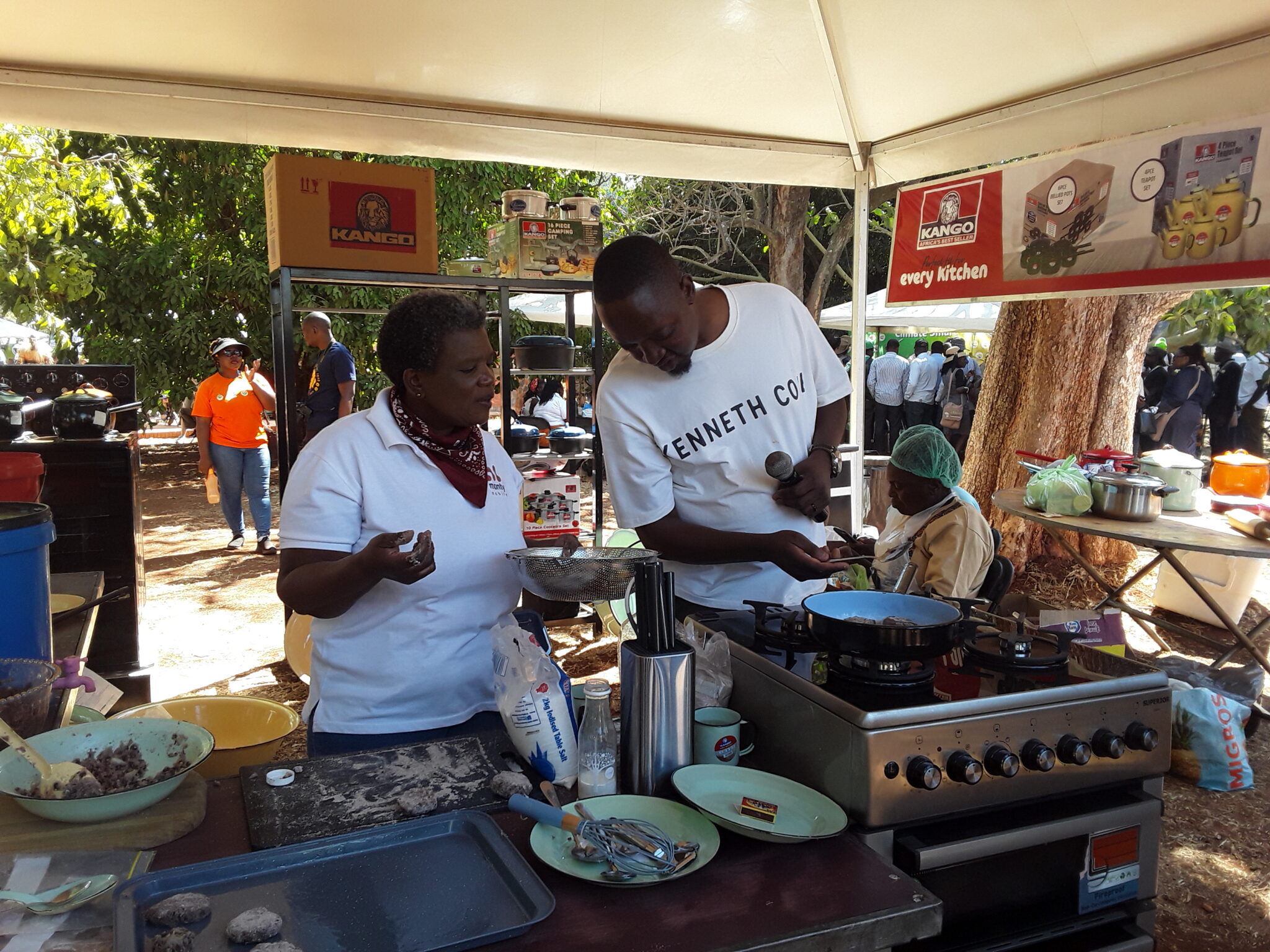Written by Joyce Chimbi, a cohort three graduate of grantee partner ESAFF Uganda’s Agroecology School for Journalists & Communicators. Agroecology Fund supports this initiative with the aim of building the capacity of journalists and communicators to write and report on agroecology in their communities.
Scores of people from across Zimbabwe’s 10 provinces gathered at the annual National Good Seed and Food Festival at the Harare Botanical Gardens for activities spanning September 13-14, 2024. The festival started in 2013 and is organised by a loose network of agroecology-leaning organisations to showcase good and healthy food, revive indigenous seed diversity and traditional technology.
Overall, it is designed as a public service event to promote farmer-led seeds and knowledge systems, and boost production and consumption of healthy foods. The general public was treated to the best of Zimbabwe’s traditional delicacies, music and cooking demonstrations, in addition to food and seeds variety exhibitions.
Fuelled by a combination of factors, a severe food crisis is intensifying across Africa and millions of people are at a heightened risk of hunger. As of 2022, nearly 20 percent of Africa’s population is undernourished. Furthermore, an estimated 868 million people on the African continent experienced moderate to severe food insecurity, with over one-third of those facing severe.
“Due to poor documentation, very little is known about how resilient our local seed systems are even between local farming communities. This festival is about exhibiting the best of African seeds and foods, and farmer-led farming systems. Agroecological is much more than a farming approach, it is also about building resilient communities especially in the face of climate change and biodiversity loss to achieve seed, food and nutrition security,” said Chimwemwe Ndau from the Soils Food and Healthy Committees in Malawi.
Throughout the gathering, seed savers, farmers, organisations, businesses and individuals shared knowledge on how to farm and produce food in harmony with nature. They sold and exchanged seed varieties and explored topics such as resilient Indigenous and local crop varieties.
Amina Chiwocha is among the farmers who were exchanging and selling seeds at the festival. She farms on a two-acre piece of land in Chingwaru village, Mashonaland in northeastern Zimbabwe. The peasant farmer was showcasing nearly 30 varieties of big and small grains, and horticulture seeds at the festival.
She said that the exhibition gives farmers an opportunity to highlight the issue of markets for nutritious, healthy and sustainably produced foods. Stressing that connecting rural smallholder farmers with suppliers and buyers helps break the cycle of poverty and improves rural development and innovation.
“I am among the farmers who are bringing back Africa’s forgotten foods. Cherry tomatoes and gooseberries are really among Africa’s forest crops. We picked and ate them on the way to the river, collecting firewood but now, you can hardly find them. We had different varieties of vegetables that are like weed with no intervention from the farmer but have been pushed out by exotic crops. At the festival, we learn about seed restoration and embracing traditional systems as they are better suited to our climate and environment,” she added.
The festival is timely and critical as it is becoming increasingly clear that industrial farming and food systems are ill-suited for Africa. For instance, maize accounts for one-third of all consumed calories in sub-Saharan Africa. While up to 20% of global maize production is lost to worsening heat extremes each year, more than 60% of Africa’s maize-growing areas face drought and yield losses.
To salvage Africa’s crumbling food systems amid the climate and biodiversity crises, the festival serves to drive a shift to local, climate-adapted crops and crop varieties that helps smallholders diversify their production.
The push is yielding results and Zimbabwe is already showing a promising shift in food production and consumption.
For instance, outstanding in its approach is the National Agriculture Policy Framework 2018−2030, as it puts more emphasis on reviving production of resilient, nutritious traditional small grains and legumes, crop diversification and sustainable land use practices.
Increasingly, a push by social movements such as PELUM Zimbabwe, an organizer of this annual festival, to ensure a more reliable, nutritious food supply at the household and national level, have been complimented by a growing movement of farmer groups and associations, community-based organisations, national and international NGOs and, philanthropic donors such as the Agroecology Fund.
Consequently, Zimbabwe’s Ministry of Health and the Food and Nutrition Council have resuscitated food and nutrition security committees which promote a multisectoral approach to improve community and household nutrition. For the first time in Zimbabwe’s history, an increasing range of traditional food and drink products are appearing on supermarket shelves and are sold in restaurants.
In the face of multiple challenges such as the ongoing climate and biodiversity loss crises, pollution and the aftermath of the COVID-19 pandemic – more support is needed for small-scale food producers, connecting them with critical and livelihoods-transforming knowledge and financial services.
Between 2012 and 2023, the Agroecology Fund – a multi donor fund supporting agroecological practices and policies – supported grassroots organization’s work in agroecology across Africa, awarding a total of $6,589,613 through 137 grants. This year they launched new regional funds in Eastern and West Africa. Many of the Fund’s grantees from across the continent and beyond such as the Eastern and Southern Africa Small-Scale Farmers Forum (ESAFF) were at the festival and took the opportunity to underscore the critical role farmer-led seed systems play in fixing Africa’s broken food systems.
